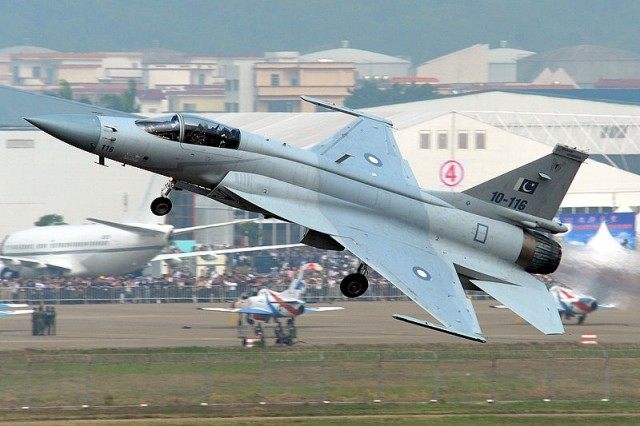A British politician has called for an end to British tax payers money going to Argentina after it was reveals that the country has reached an agreement with China to purchase fighter jets capable of attacking the Falkland Islands as talks with Beijing start to produce results.
During a three day visit by Argentinian President Kristina de Kirchner to China, a ‘strategic partnership’ deal was discussed in which Argentina secured 15 economic agreements and significant financial investment from China to prop up its weak economy, the Sunday Express reports.
UKIP MEP Nathan Gill said it was “inconceivable that Britain has contributed £7 million to Argentina in foreign aid, via a £50 million EU aid programme.”
“In the light that Argentina has now purchased Chinese fighter jets, all aid to Argentina must be cancelled immediately.
“It is an insult to veterans of the Falklands war, those who lost loved ones and the hard pressed British tax payer for this government is funding the Kirchner regime.”
China was not the first port of call for the South American country which still insists the British Falkland Islands are part of its overseas territories. Initially Buenos Aires was in discussion with Vladimir Putin to purchase 12 Sukhoi Su-24 ‘Fencer’ bombers which could reach the Island’s capital.
But that deal had stalled after a series of delays and concerns over the contracts of maintaining the fleet after the sale had occurred.
In the last few weeks there have been reports of an increase in the number of British troops being sent to the Falkland Islands as part of “high-readiness exercises” according to a military source.
The Islands have a core military presence of 1,200 troops, four Typhoon fighter jets and Artillery.
But with the Islands on the highest alert of years, a source said the aim of the deployment was to “put more than 1,000 troops from five different cap badges into the islands by November but they will deploy in small groups from 150 to 300, for short tours
The UK currently has a significant strategic gap when it comes to defending its overseas territories in particular due to the absence of any aircraft carriers until the Queen Elizabeth is operational in 2020. The task force which was deployed in 1982 would not be available following the 2010 coalition Strategic Defence and Security Review.
In January the Ministry of Defence reveals the Rapier air defence system, the surface to air missiles which protect the Falklands from enemy attacks launched from the sky, were to be upgraded.
China plans to invest £162 billion in projects in Latin America including the Cepernic Kirchner dams, the Belgrano Cargas railway and the Arucha nuclear plant as well as writing off millions of pounds of previous loans as it uses its economic might to exert its geopolitical influence.
The procurement of Chinese aircraft is worrying; they are modern, fast and very capable,” said an RAF source.
“However, we have a robust capability in the Falklands and I imagine that de Kirchner is trying to reinforce her military to strengthen her foreign policy at the negotiating table.”
Justin Bronk of the Royal United Services Institute think tank said: “Argentina had been negotiating for Russian aircraft, but in fact the Fencers they were looking at are very outdated if you are looking to hold the Falklands, and they have a very poor record for aftersales service for customers.
“China’s JF-17 is based on the old Soviet Union’s Mig 21, the backbone to the Soviet air force, so it has excellent pedigree.
“But it is cheaper than what Russia has to offer, brand new, and has a good reputation for being reliable and having an extremely wide armament fit.
“It is the non-Western equivalent to the Swedish Gripen, which Argentina originally tried to acquire through Brazil before the deal was stopped by Britain because it contained 30 per cent British parts.
“It would certainly allow Argentina’s air force to fly over Port Stanley, though it’s no match for RAF Typhoons and its pilots don’t have the asymmetrical training that RAF has.
In addition, we have the Type-45 destroyer which is the most formidable air defence destroyer in the world.
“This deal would give China the first proper export market for this new fighter jet, which has been developed with Pakistan, and it seems China is willing to offer Argentina very good finance terms.”
He added: “ There is definitely an aspect of trying to restore Argentinean martial pride, bearing in mind what an enormous issue the ‘Malvinas’ issue remains there.

COMMENTS
Please let us know if you're having issues with commenting.